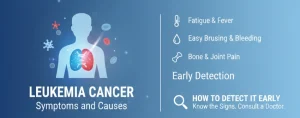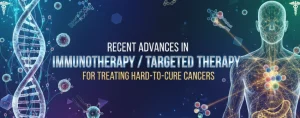Cancer treatment has come a long way in recent years, with better medicines and advanced technology giving patients better options than ever before. One of the biggest changes in oncology treatment is the move towards personalised care.
Every patient’s cancer is different, so the treatment should be different too. This is where medical oncologists play a key role. They are doctors who plan and manage cancer treatments, making sure each patient gets the care that works best for them while focusing on both recovery and quality of life.
What Does an Oncologist Do?
An oncologist is a doctor who diagnoses and treats cancer. There are three main types of oncologists:
- Surgical Oncologists – Perform surgery to remove tumours and affected lymph nodes or organs.
- Radiation Oncologists – Use targeted radiation therapy to destroy cancer cells.
- Medical Oncologists – Treat cancer using drugs (oral, IV, or SC) such as chemotherapy, immunotherapy, hormonal therapy, and targeted therapy.
The Medical Oncologist’s Role in Cancer Care
Medical oncologists play a critical role in the diagnosis and treatment process. They:
- Confirm the presence of cancer through biopsy and identify the stage of the disease (Whole Body PET-CT; MRI).
- Order and interpret other investigations, including blood tests.
- Work closely with surgeons, radiologists, and radiation oncologists to build a comprehensive treatment strategy.
This multidisciplinary approach ensures patients receive comprehensive and ethical care at every stage.
Also Read – Targeted Cancer Therapy: A Step Towards Personalised Treatment
Personalised Cancer Treatment Plans
Personalised or precision cancer treatment means creating a management and treatment plan tailored to the stage and tumour characteristics of the patient. Instead of using the same method for everyone, oncologists rely on detailed information such as biomarkers, genetic testing, and individual health data.
This allows them to select therapies that target the specific type of cancer more effectively. Options may include:
- Chemotherapy is used to kill the cancer cells and thus result in tumour shrinkage.
- Targeted therapy is designed to act on particular mutations within cancer cells.
- Immunotherapy boosts/helps the body’s own immune system to fight against the tumour cells.
The choice of therapy depends on medical findings and is best discussed with a treating oncologist.
Monitoring and Adjusting Treatment
Cancer treatment is no longer a one-time process. Medical oncologists continuously monitor how well the response and tolerance is.
- They assess progress through regular scans, blood tests, and physical check-ups.
- They manage side effects such as fatigue, nausea, or pain by prescribing medicines or suggesting supportive therapies.
- They make necessary adjustments to the treatment plan if a patient is not responding as expected or if complications arise.
This ongoing review is pivotal for maintaining both effectiveness and patient safety.
Supporting the Patient Holistically
Cancer care goes beyond medication. Medical oncologists also focus on the overall well-being of their patients.
- They provide emotional support by addressing patient concerns and answering questions.
- They coordinate supportive care such as nutritional advice, pain management, psychologist opinion, and palliative services.
- They guide families in understanding the condition and what to expect during the course of treatment.
This holistic approach makes the journey less overwhelming for both patients and their loved ones.
The Importance of Early Consultation with a Medical Oncologist
Consulting a medical oncologist early in the diagnosis process is very important. Early involvement helps in creating an effective treatment plan at the right time. It also provides the advantage of diagnosing the disease at an early stage and thus increases the chances of cure.
Delaying consultation may limit available options, so discussing the situation with a qualified oncologist as soon as possible is highly recommended.
Conclusion
Medical oncologists play a vital role in guiding patients through one of the most challenging phases of life. By diagnosing, planning and monitoring treatment, they ensure care is tailored to individual needs. Their involvement in personalising cancer treatment plans makes a significant difference in outcomes, comfort, and hope for patients and their families.
Also Read – Top Myths About Cancer: Debunked by Oncology Experts
Frequently Asked Questions
1. What is the role of a medical oncologist?
A medical oncologist is a doctor who treats cancer with drug-based therapies such as chemotherapy, immunotherapy and targeted therapy. They also coordinate with other specialists, monitor treatment progress, and manage side effects to provide complete care.
2. What is a personalized approach to cancer treatment?
A personalised approach means tailoring treatment to each patient’s condition. Factors such as cancer type, stage, genetic profile and overall health are considered to select the most suitable therapies.
3. What is the role of psycho-oncology in the treatment of cancer patients?
Psycho-oncology focuses on the emotional and psychological well-being of cancer patients. It helps them and their families cope with stress, anxiety, and the emotional challenges that often come with treatment.
4. What is the personalised cancer care strategy?
A personalised cancer care strategy uses medical data, genetic tests, and biomarkers to choose therapies that target cancer more effectively. It ensures treatment is aligned with the patient’s individual needs and goals.
5. Why is personalised treatment important?
Personalised treatment improves the chances of better outcomes by selecting therapies that are more likely to work for a specific patient. It also helps reduce unnecessary side effects by avoiding treatments that may not be effective for that individual.
6. What is an individualised treatment plan?
An individualised treatment plan is a roadmap created by the oncologist for a patient’s care. It includes the choice of therapies, timelines for treatment, monitoring schedules and supportive care to address both medical and personal needs.
Medically Reviewed by — Dr. Siddharth Sahai (Director – Medical Oncology)











